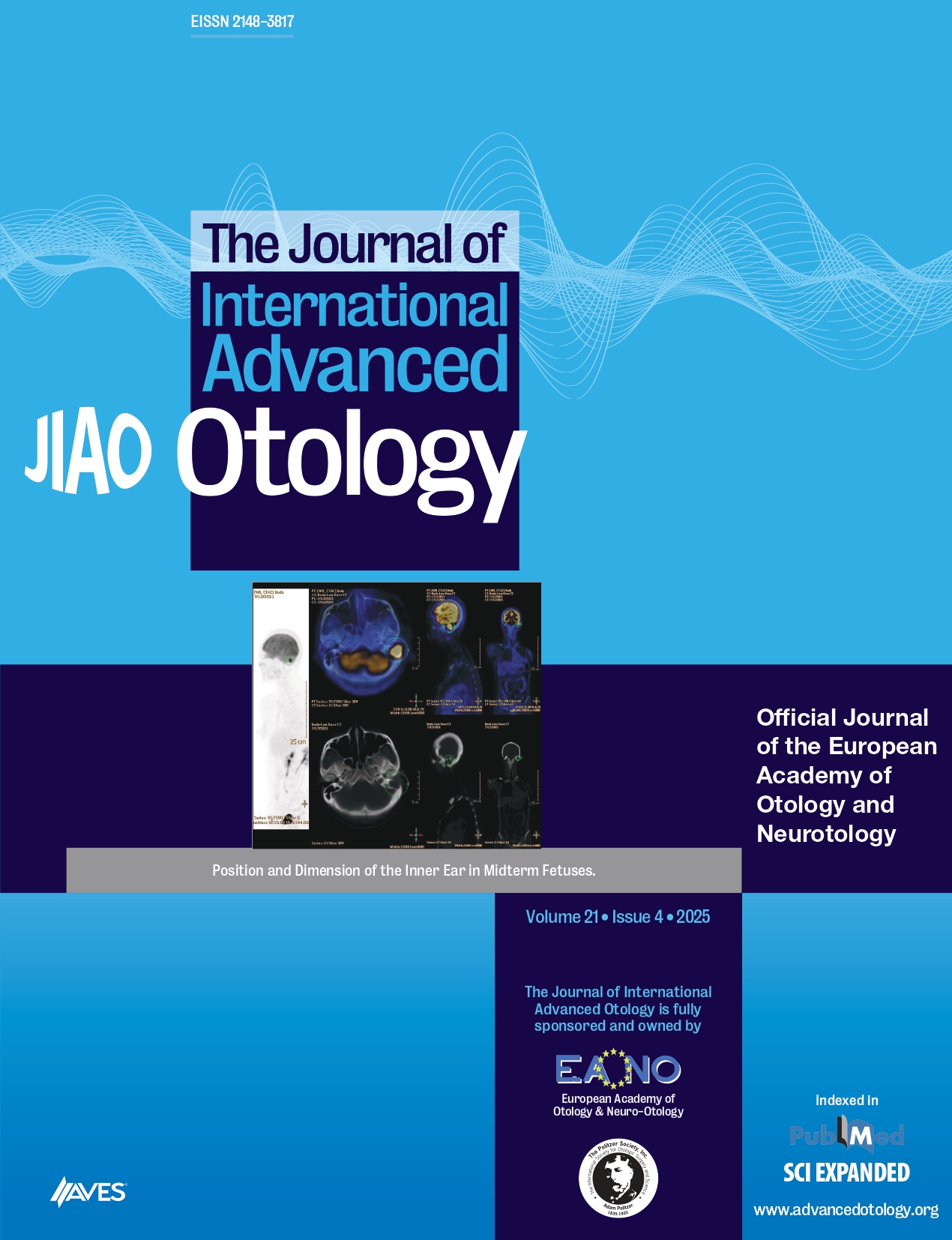Abstract
OBJECTIVES: This study aimed to determine whether, in asymmetric hearing loss, the presence of an ear with a better or worse hearing threshold is related to either better or worse speech-in-noise (SiN) intelligibility.
MATERIALS and METHODS: A total of 618 subjects with different degrees of hearing loss were evaluated for their ability to understand SiN. A stepwise forward logistic regression analysis was performed to identify the factors that affect performance. The influencing factors of very high or very low performance were determined.
RESULTS: Age, especially after 70 years of age, and hearing loss, especially from moderate hearing loss, negatively influence SiN intelligibility. Remarkably high intelligibility was identified in subjects with a contralateral ear presenting a better auditory threshold.
CONCLUSION: Although age and hearing loss are known factors that affect SiN intelligibility, the presence of a healthy contralateral ear is presented as the first description of preservation of SiN hearing ability.
Cite this article as: Barona R, Vizcaíno JA, Krstulovic C, Barona L, Comeche C, Montalt J, et al. Does Asymmetric Hearing Loss Affect the Ability to Understand in Noisy Environments? J Int Adv Otol 2019; 15(2): 267-71.



.png)
.png)